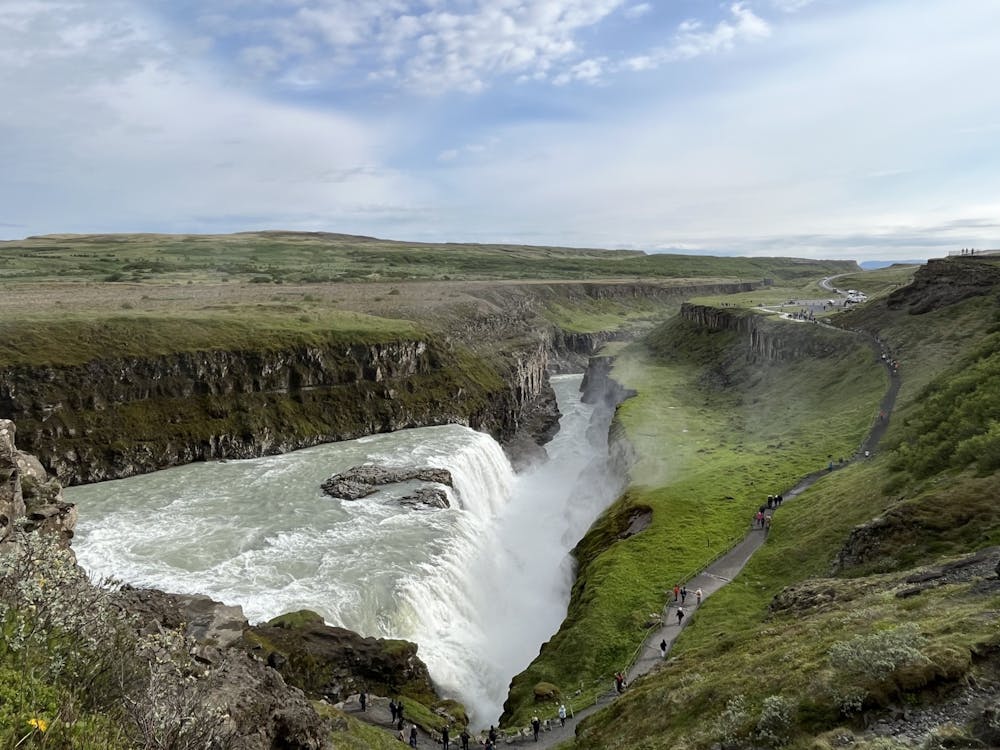I’ve never had a gut feeling governing what I pursue in life. There has been no calling that has led me to my declared major. I didn’t discover that I wanted to become an author at seven or have an epiphany that launched me on the premed track early in life. I’ve always enjoyed creating things — Lego sets know no age limit — and science classes always kept me engaged. As someone who is excited about innovating new solutions, helping people and mitigating climate change, the Environmental and Water Resources track within civil engineering seemed like a solid possibility — and so I decided to try it out.
As a first-year, I felt like everyone around me in the School of Engineering knew that that’s what they were going to pursue — engineering. The only question for them was what field. My question still revolved around engineering being the right fit for me. Early this summer, as a rising second-year Civil Engineering student, I was wondering why, after a year of college, I still hadn’t had that “aha” moment where engineering just clicked.
I’d been frustrated about how I had to actively decide on a major rather than feel naturally gravitated toward one. How could I know what I didn't want to do if I didn’t try it firsthand? I didn’t want there to be any question about what I was studying and why, and yet the doubts crept in.
These doubts were still present, albeit quieter, in my mind when I landed in Keflavik International Airport near Reykjavik, Iceland this past June for a family vacation. I didn’t know it yet, but within a few days of exploring this country, I was going to gain some much-needed clarity on both what I want to do, and how I knew that it was right for me at the time.
As soon as my family and I started on Route 1, the seemingly never-ending road that loops all around the island, I felt as if I had landed on another planet. Molten rock flooded my view through the window, and someone in the car would point out yet another waterfall every five minutes. Driving just about anywhere in Iceland and stepping outside of the rental car, I was immersed in 360 degrees of awe-inspiring beauty, and the polarity of the environment was stunning.
Glaring sheets of ice contrasted lush, green vegetation. Wild horses, goats and sheep roamed mountainsides — and the highway. Walking in gorges, behind waterfalls, on black sand beaches and on top of glaciers, I felt more connected with nature than ever. Every time we pulled off to the side of the road to check out the view, it was harder to get back in the car. As I felt compelled to stay outside just a few minutes longer and take pictures of everything — to capture the fragility and power of what I was experiencing — I came to an important realization. I might not have an innate calling toward engineering, but I have a strong reason propelling me to pursue it.
My time exploring Iceland strengthened my deep appreciation for nature and the sheer magnitude of beauty it holds on this planet — something I often neglect to indulge when I’m stuck in the suburbia bubble. My desire to continue having opportunities to immerse myself in nature works in tandem with my desire to ensure the ability of ecosystems to thrive.
This reflection was not an “aha” moment. I didn’t suddenly know that I was absolutely pursuing the right field study for me. But it did help me to understand that my love of nature is my reason for pursuing civil engineering. Maybe it’s not a calling, but it’s my purpose and logic behind doing what I’m doing. Logic — I must be an engineer, after all.
Studying civil engineering is what I feel I want to do, and if my passion for preserving places like those I visited this summer evolves into another form of action — perhaps law or policy — then that’s awesome, too. Not knowing if we want to involve ourselves in work that directly aligns with what our majors “call for” isn’t just okay, it’s normal. A major declaration is not a life declaration — it’s simply a starting point.
My experience in Iceland helped me realize that every day I actively choose engineering is a day I continue to learn more about myself — something I’m still figuring out at 19 years old. Taking other types of classes in tandem with the prescribed engineering curriculum — exploring subjects like foreign affairs and policy — will empower me to pursue engineering in a way that makes sense for me and incorporates my varied interests.
Self-discovery can still take place without a dramatic realization and in an experimental, trial-and-error way. However we start on our paths and wherever we find ourselves down the road, our life experiences will continue to shape our decisions.
There are no missteps — so keep climbing and journey forward.







